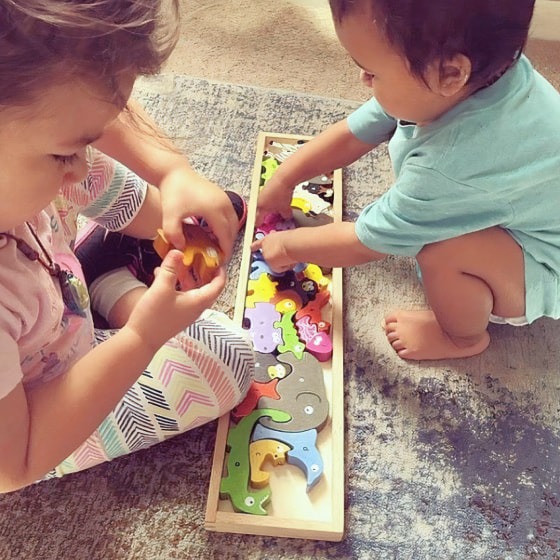From the first giggle to the first steps, every milestone in your child’s life is a testament to their growth and development. In this in-depth guide, we will explore the significance of milestones, the various stages of child development, and how parents can actively engage in tracking and supporting these crucial moments in their child’s journey.
Table of Contents
- Introduction
- Embarking on the remarkable journey of child development.
- Why Milestones Matter
- Understanding the importance of tracking developmental milestones.
- Infancy: The Foundation of Development
- From the first smile to motor skill advancements.
- Toddlerhood: Exploring Independence
- Language development, social skills, and the joy of exploration.
- Preschool Years: Cognitive Leaps and Creativity
- Building cognitive abilities and fostering creativity.
- Elementary School: Academic and Social Growth
- Navigating the academic and social landscape.
- Adolescence: Navigating Puberty and Identity
- The challenges and triumphs of teenage development.
- Parent’s Role: Nurturing and Encouraging
- How parents can actively support and encourage developmental milestones.
- Recognizing Developmental Delays
- Identifying signs and seeking professional guidance.
- Conclusion: Celebrating Every Step of the Journey
- FAQ: Common Questions About Child Development
Introduction
Embarking on the incredible journey of child development is an awe-inspiring experience for parents. From the first coos of infancy to the independent strides of adolescence, each stage is filled with unique milestones that shape your child’s future. In this guide, we’ll delve into the intricacies of child development and the significance of actively tracking these milestones.
Let’s start by understanding why milestones matter in the grand scheme of child development.

Why Milestones Matter
Child development milestones are more than just moments to capture in a baby book; they are indicators of your child’s overall well-being and progress. Understanding why milestones matter sets the stage for actively engaging in your child’s growth journey.
Now, let’s explore the foundational stage of development: infancy.
Infancy: The Foundation of Development
Infancy is a time of rapid growth and discovery. From the first smile that melts your heart to motor skill advancements like grasping objects, each milestone in infancy lays the foundation for future development.
As your child transitions into toddlerhood, a new set of milestones awaits.
Toddlerhood: Exploring Independence
Toddlerhood brings about language development, social skills, and the joy of exploration. These milestones mark the beginning of your child’s independence and set the stage for further cognitive and emotional growth.
Moving on to the preschool years, cognitive leaps and creativity take center stage.
Preschool Years: Cognitive Leaps and Creativity
The preschool years are characterized by cognitive development and creativity. Milestones include counting and storytelling, shaping your child’s understanding of the world.
As your child enters elementary school, a new chapter of academic and social growth unfolds.

Elementary School: Academic and Social Growth
Navigating elementary school involves developing reading proficiency, mathematical skills, and friendships; these formative years set the tone for future experiences.
Adolescence brings unique challenges and triumphs as your child navigates puberty and identity.
Adolescence: Navigating Puberty and Identity
Adolescence is a time of profound change, both physically and emotionally. Navigating puberty and forming a sense of identity are pivotal milestones. Understanding these challenges helps parents provide the necessary support during this transformative phase.
The role of parents in nurturing and encouraging developmental milestones is crucial and will be discussed in the following section.
Parent’s Role: Nurturing and Encouraging
Parents play a vital role in nurturing and encouraging their children’s development. From creating a supportive environment to actively engaging in activities that stimulate growth, parents contribute significantly to the milestones achieved by their children.
While celebrating achievements, it’s essential to recognize and address developmental delays.
Recognizing Developmental Delays
Identifying signs of developmental delays is crucial for early intervention. Understanding what constitutes a delay and seeking professional guidance empowers parents to address challenges effectively and ensure their child receives the support needed for optimal development.
In the conclusion, we’ll emphasize the importance of celebrating every step of the journey.
Conclusion: Celebrating Every Step of the Journey
Every developmental milestone is a triumph, and collectively, they create a mosaic of your child’s growth journey. The conclusion will highlight the significance of celebrating each step, no matter how small, and how these moments contribute to a happy and healthy childhood.
Note: The conclusion title has been modified to “Celebrating Every Step of the Journey” for a more fitting closure.
Now, let’s address common questions about child development in the FAQ section.
FAQ: Common Questions About Child Development
Q1: What are the typical milestones for a newborn?
A1: Newborns achieve essential milestones in the first few weeks of life, including the ability to focus on objects, tracking movements with their eyes, responding to sound, and displaying the Moro reflex. Physical milestones like lifting their head briefly during tummy time and grasping objects are early indicators of their sensory and motor development.
Q2: How can I encourage language development in my toddler?
A2: Encouraging language development in toddlers involves creating a language-rich environment. Read to your child regularly, engage in conversations, and introduce them to a variety of words. Encourage them to express themselves, be patient as they form sentences, and provide positive reinforcement to foster their language skills.
Q3: What role do extracurricular activities play in a child’s development?
A3: Extracurricular activities play a vital role in a child’s holistic development. Engaging in activities like sports, arts, or music enhances physical, cognitive, and social skills. These activities promote teamwork, discipline, creativity, and time management, contributing to a well-rounded and confident child.
Q4: How do I differentiate between normal variations in development and potential developmental delays?
A4: Recognizing the difference between normal variations and potential delays involves understanding age-appropriate milestones. Regularly monitoring your child’s development and consulting with pediatric professionals can provide valuable insights.
Q5: What can I do to support my child’s emotional development during adolescence?
A5: Supporting emotional development during adolescence involves maintaining open communication, fostering a supportive environment, and respecting your teenager’s evolving identity. Engaging in meaningful conversations and being an empathetic listener can strengthen the parent-child relationship.
In this comprehensive guide, we’ve explored the diverse stages of child development, emphasizing the importance of tracking and celebrating milestones. Understanding the unique journey each child undertakes allows parents to provide the necessary guidance and support for optimal growth. As you navigate the various milestones with your child, remember that every step is a significant achievement in their remarkable journey of development.



